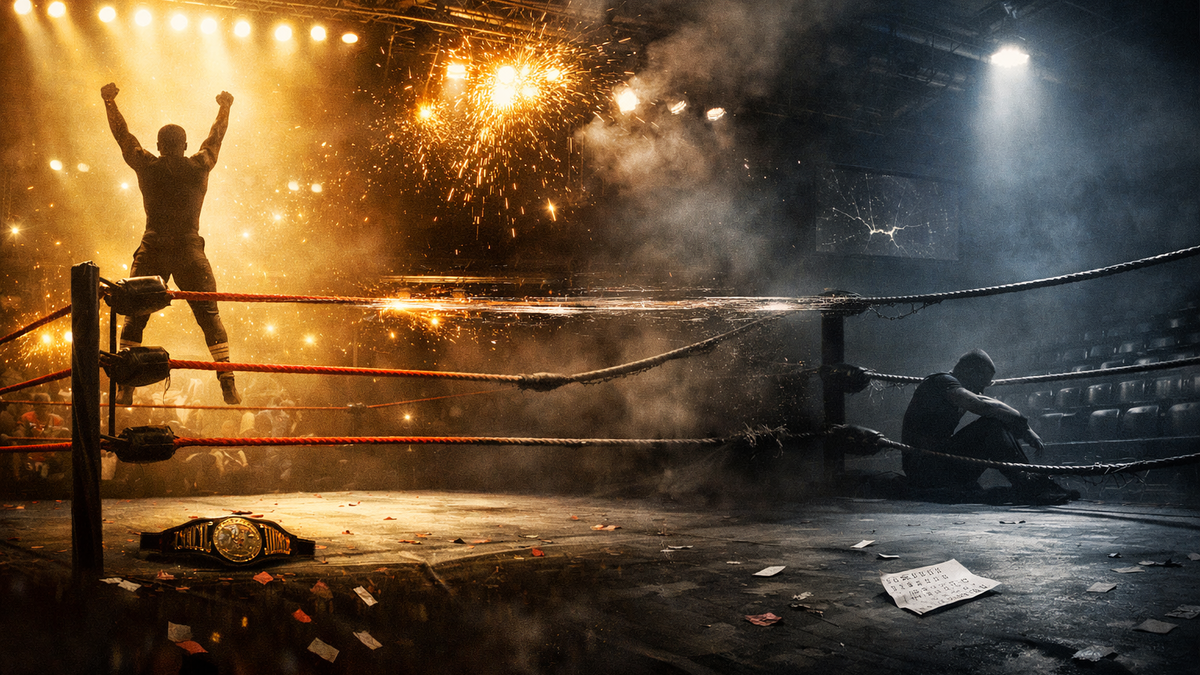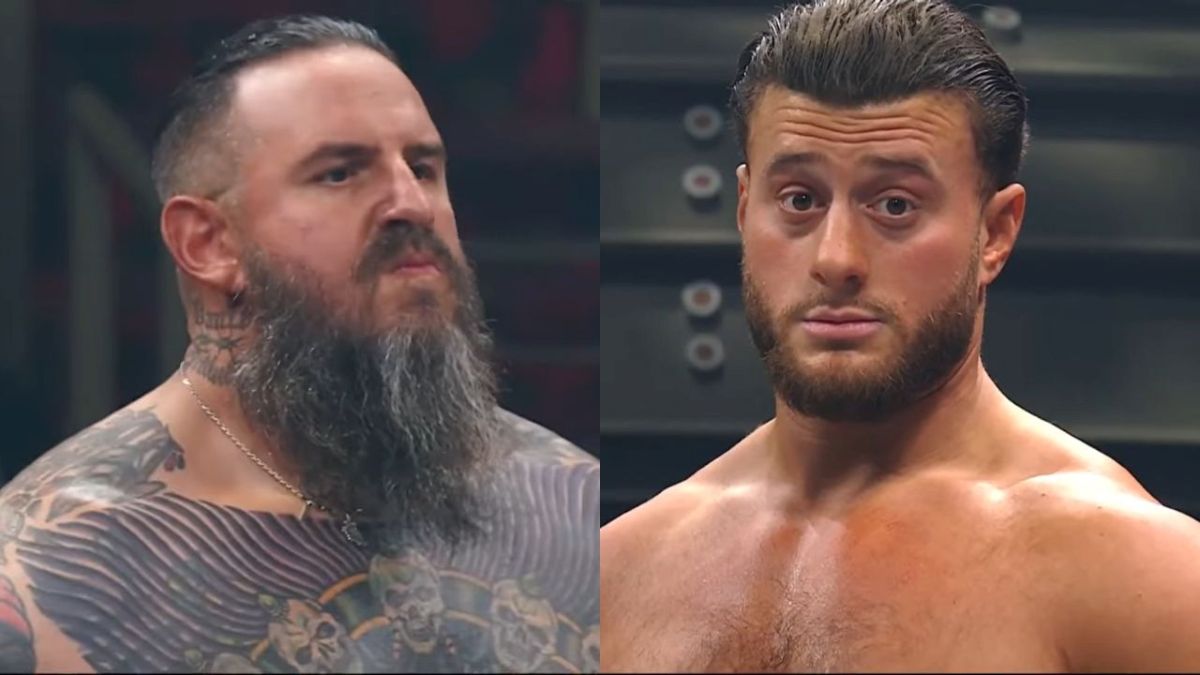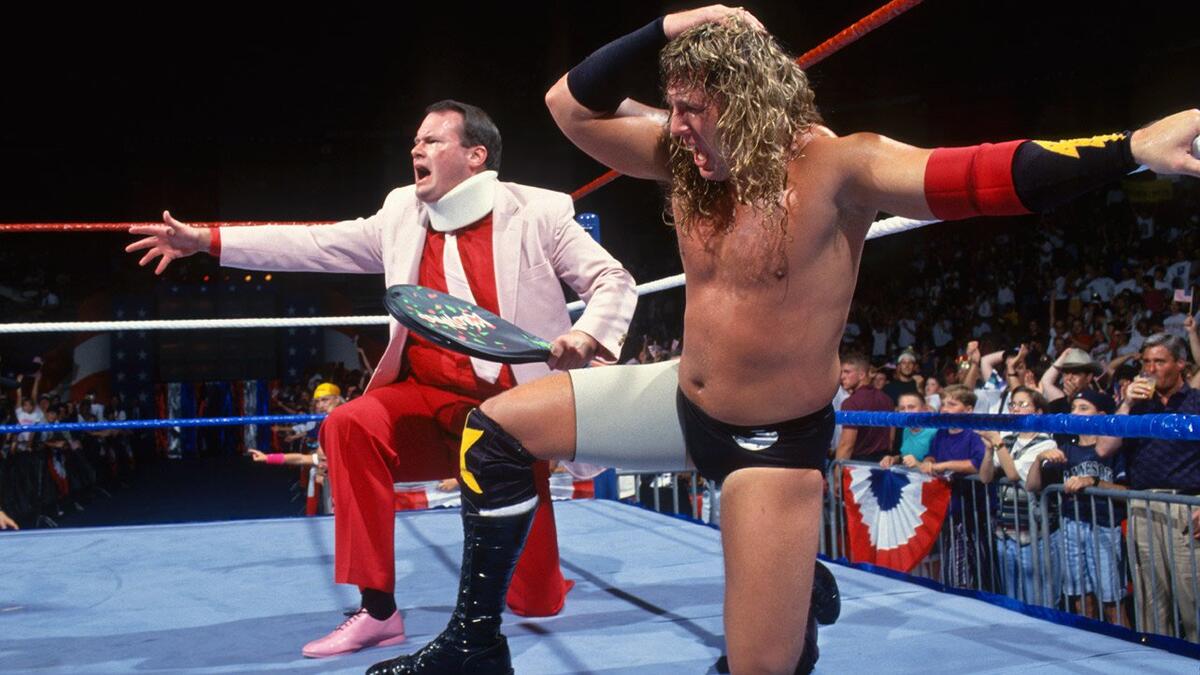When I look back on my many years covering pro wrestling, I’m not sure that I had to work as hard to gain someone’s trust than the late, great Sweet Daddy Siki, who died after a long battle with dementia on New Year’s Eve 2024.
Given his upbringing, poor and unsettled in rural Texas in the Great Depression through the Second World War, he didn’t have many people he could trust. It wasn’t until he was shipped to family in Los Angeles that he grew into the great man he became, finding himself through sports — boxing and then wrestling.
After serving his country at the tail end of the Korean War, Siki embarked on his pro wrestling career, and learned to distrust just about everyone. Promoters were never honest. Fans wanted to lynch him when they weren’t booing him. Fellow wrestlers were often out to push themselves over everyone else.
Settling in Toronto, where it was acceptable for an African-American to be married to a Caucasian woman, Siki learned to be wary of music promoters too, as he took his country music band to bar after bar, on the lookout for owners who might shortchange the band.
He stopped wrestling cold turkey after the fateful Bearman Dave McKigney tour in 1988, where McKigney, Adrian Adonis and Pat Kelly all died in a van accident in Newfoundland and Labrador.
It was like wrestling had betrayed him, now he was losing his friends.
Betrayal was also a recurring theme when Siki discussed Ron Hutchison too, whom he ran a wrestling school with. Whatever happened between the two, it’s fair to say that they never saw eye to eye again, Siki especially being the one who held a grudge.

This is where I come into the picture.
When I’d talk to Siki on the phone in the late 1990s, as the internet was starting up, he’d lament that his name was still associated with Hutchison’s, through various websites listing places to learn to wrestle (in raw HTML to boot, those were the days).
“Greg, can you take my name off there?”
Hmm, how to explain that I don’t control the internet?
From there, I’d call him every so often, usually letting him know about a pro wrestler that had passed away or was ailing.
Where I really earned his trust, though, was after going to the Cauliflower Alley Club reunions, and coming back with stories — and phone numbers of people who really, really wanted to reconnect with their old friend, who they called Reg.
Some of his earliest memories in wrestling were with Tito Carreon and Bill Olivas in Arizona. He also kept in touch with Cowboy Bob Ellis, a veritable recluse compared to many of his contemporaries.
Siki is featured in my first book, The Pro Wrestling Hall of Fame: The Canadians, but is really celebrated in The Pro Wrestling Hall of Fame: Heroes & Icons, which might be hard to understand for all of those who saw him as the preening, egotistical Sweet Daddy, checking himself out in the hand mirror before matches.
That was a meeting I’ll never forget, as he was always reluctant to head out, and was ultra-private. We met up at a McDonald’s near his home in Parkdale in Toronto’s west end — to many he was the King of Parkdale, still so identifiable with his dyed-blond hair — with my young son Quinn, about 6, along too. Siki appreciated his copy of Heroes & Icons, but loved being around Quinn a lot, and every time I called him after that, he asked about my son, always mentioning how intelligent and well-spoken he was.
I didn’t know it at the time, but Siki no doubt appreciated the break from caring for his ailing wife, Anne, who would pass away on October 7, 2013.
That is so very Siki, not one to vent, at least not to someone he didn’t know well.
But we got there. It just took time.

A highlight was Bruno Sammartino ordering me to get both Siki and Willie “The Wolfman” Farkus out to see him when he was coming up to Toronto for WrestleReunion in 2012. I did and it was magical to see them all interact.
After the success of their movie on The Iron Sheik, The Sheik, Jian and Page Magen really wanted to make another documentary, and zeroed in on Sweet Daddy Siki. The only problem? He didn’t know them.
Enter Greg, the middle man.
The 2017 documentary, Sweet Daddy Siki, wouldn’t have been made without me. (And not just because I’m credited as the writer of it.)
That sounds like something the villainous Siki would have crowed about in a promo, but it’s true. As great as it was working with the Magens, director Harv Glazer, cinematographer Pasha Patriki, the producers (especially Jeremy Shell, who continues to be a friend), Siki only did the movie because I vouched for the people putting it together.
And because he’d make a few bucks out of it, too. Siki’s one of those guys who pinched his pennies, so money always talked … at least when he wasn’t singing or hosting karaoke.
That trust grew. We’d be going to shoots for the documentary, just him and I in the car, and he’d open up, off the record. He loves his two sons, Reg and Justin, and grandkids, and missed his wife — but was a bit of a playa after her passing. We talked about that, how a widower who took care of his ailing spouse was seen differently in the dating world than a divorced man, something I saw with my own father, who took care of my mom until her death in 2001. I gained confidence while gaining his, and boldly asked about the other kids that I knew about that were his. Without hesitation, Siki just said he chose not to be a part of their lives, discussion over. I have been able to share that with at least one of his other kids.
It was Siki’s son, Reg, who told me about his father’s death, and was most appreciative of my friendship with Sweet Daddy — and Elkin James … Siki’s real name.
I was a part of six fundraising dinners for the Pro Wrestling Hall of Fame, which was then based in Upstate New York, that brought together many of the names in and around southern Ontario. We centered the sixth edition of the Titans in Toronto dinners around Siki. Rocky Johnson came to pay tribute, as did many others, the moment captured for the film. At the podium, Siki was thankful and appreciative of all the love; it wasn’t like he cut a promo.

We’d talk here and there post-doc, and I began to see him slipping, repeating stories even more, reverting to tales he’d told so many times that he knew them by heart. There was no more exploring his wonderful memory bank about wrestlers of the past.
Then came the pandemic, and lockdown, and I never got to see him in person again. Siki became a virtual recluse, his family understandably his bubble. He didn’t email, didn’t do Zoom chats. You had to get him on the phone, which was not always an easy task.
We talked when Charley Pride died, and laughed about the memories; Siki and Pride, one of his heroes, singing together in a hotel room in Windsor, Ontario for the documentary. That was my idea, and Shell executed it. The two of them singing together was not planned, and almost not even filmed — and it remains my favorite part of Sweet Daddy Siki.
Reflecting back on any relationship, we rarely assess how we got to that point, you just celebrate the friendship. As I try to do that, I can’t help but think, Damn, it was a lot of work becoming Siki’s friend.
But it was worth it.
TOP PHOTO: Greg Oliver, photographer Roger Baker and Sweet Daddy Siki sit around Roger’s kitchen table in Aurora, Ontario, swapping stories in April 2016.
RELATED LINKS
- June 10, 2017: Mat Matters: Sweet Daddy Siki documentary was a personal journey
- Sweet Daddy Siki story archive




